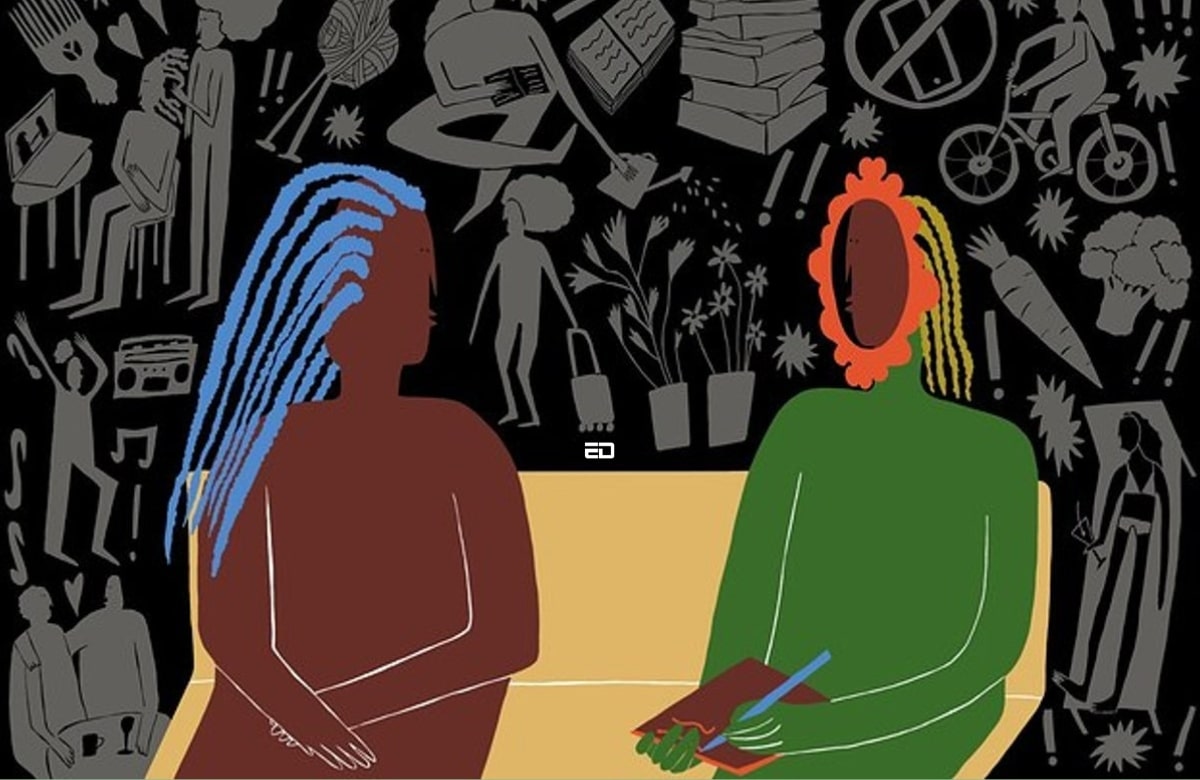In today’s digital age, seeking guidance and advice has never been easier. With the advent of social media platforms like Instagram, Facebook, and YouTube, individuals across India are turning to online influencers for insights into various aspects of life, including mental health.
However, amidst this accessibility lies a concerning trend – the proliferation of self-styled therapists who lack the necessary qualifications and expertise.
One such example is the case of a 36-year-old woman from Guwahati, who, faced with the taboo surrounding mental health, sought therapy through an online platform.
Instead of receiving the support she needed, she found herself subjected to inappropriate disclosures from the so-called therapist about his personal struggles. This experience highlights the dangers of relying on unqualified individuals for mental health guidance.
The Influencer Effect: Posing as Experts
Influencers wield considerable influence over their followers, often portraying an idealized version of life and offering advice on various topics, including mental health. However, many of these individuals lack the qualifications and expertise to dispense such advice responsibly.
In the wake of a recent breakup, Apoorva, known as “The.Rebel.Kid” on Instagram, has initiated a trend dubbed “Saddie Being a Baddie,” documenting her daily escapades of excessive drinking and relentless partying with friends.
While seemingly harmless at first glance, this trend epitomizes unhealthy coping mechanisms, masking emotional distress with temporary distractions.
Excessive alcohol consumption not only poses significant physical health risks but also exacerbates underlying mental health issues, perpetuating a dangerous narrative of avoidance rather than confrontation.
Glamorizing reckless behavior as empowerment undermines the importance of self-care and healthy coping mechanisms, sending the message that vulnerability should be suppressed rather than embraced. It is crucial to recognize the inherent dangers of such trends and prioritize emotional healing over temporary distractions to ensure long-term well-being.
Ranveer Allahbadia’s motivational content, while aiming to inspire personal growth and success, may overlook critical aspects of holistic well-being. Its overemphasis on hustle culture without addressing the importance of rest and self-care can perpetuate burnout and mental health issues.
Furthermore, his one-size-fits-all approach lacks nuance and may not adequately consider individual circumstances or mental health needs, potentially leading to unrealistic expectations and feelings of inadequacy among his audience.
Despite occasional mentions of mental health, his content often lacks the depth and expertise needed to effectively address complex issues, potentially oversimplifying challenges and failing to provide practical strategies for coping and seeking help.
Thus, while Ranveer’s content may offer motivation, it falls short in providing comprehensive support for the mental well-being of his audience.
Read More: CBSE Reveals Fake Social Media Accounts That Students Should Be Careful Of
Jay Shetty, a former monk turned motivational speaker and influencer has faced criticism regarding plagiarism in his content. While he gained immense popularity for his inspirational messages and insightful videos, several instances have surfaced where he allegedly replicated ideas and content without proper attribution to the original sources.
This has raised concerns about the authenticity and integrity of his work, as well as the ethical implications of profiting from borrowed wisdom without acknowledgement.
Despite his widespread following and positive impact on many individuals, these allegations have tarnished his reputation and sparked discussions about the importance of ethical sourcing and crediting in the digital content creation landscape.
The Dangers of Unregulated Counselling
The lack of regulation in India’s counselling industry further exacerbates the problem of pseudo-therapists posing as experts. Without proper oversight, individuals with minimal qualifications can freely offer counselling services, putting vulnerable individuals at risk.
Consider the case of Roshini, who sought therapy from a counsellor only to find her distracted and unprofessional during their session. This experience not only left Roshini feeling unheard but also underscored the need for stricter regulation in the counselling industry to protect clients from such experiences.
The Call for Regulation and Accountability
In light of these challenges, there is an urgent need for stricter regulation and accountability measures in India’s counselling industry. The passage of the Allied and Healthcare Professions Act 2021 represents a step in the right direction, promising to establish standards of education and maintain a central register of professionals.
However, until the act is fully implemented, individuals must exercise caution when seeking mental health guidance online. Rather than blindly following self-styled therapists and influencers, it is essential to verify their qualifications and seek guidance from licensed professionals.
In conclusion, the rise of self-styled therapists in India’s online landscape poses a significant threat to mental health. Without proper regulation and accountability measures, vulnerable individuals are at risk of receiving harmful advice from unqualified individuals. It is time for stricter oversight to ensure that those seeking mental health guidance receive the support and expertise they deserve.
Feature image designed by Saudamini Seth
Sources: The Print, Instagram, Reddit
Find the blogger: Pragya Damani
This post is tagged under: The.Rebel.Kid, Apoorva, Instagram, social media, unhealthy coping mechanisms, breakup, coping with heartbreak, excessive drinking, partying, temporary distractions, mental health, emotional healing, self-care, empowerment, vulnerability, glamorization, avoidance, confrontation
Disclaimer: We do not hold any right, or copyright over any of the images used, these have been taken from Google. In case of credits or removal, the owner may kindly mail us.
Other Recommendations:
Social Media Found To Be Pushing ‘Misogynistic Content’ To Youngsters As Per Study




































